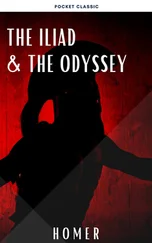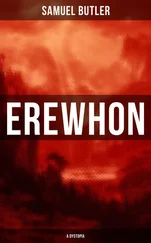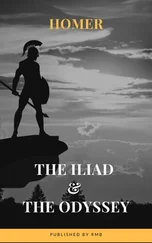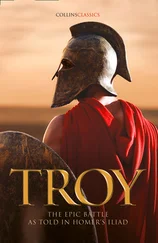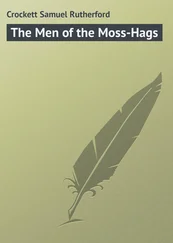Samuel Butler - The Authoress of the Odyssey
Здесь есть возможность читать онлайн «Samuel Butler - The Authoress of the Odyssey» — ознакомительный отрывок электронной книги совершенно бесплатно, а после прочтения отрывка купить полную версию. В некоторых случаях можно слушать аудио, скачать через торрент в формате fb2 и присутствует краткое содержание. Жанр: foreign_antique, foreign_prose, на английском языке. Описание произведения, (предисловие) а так же отзывы посетителей доступны на портале библиотеки ЛибКат.
- Название:The Authoress of the Odyssey
- Автор:
- Жанр:
- Год:неизвестен
- ISBN:нет данных
- Рейтинг книги:5 / 5. Голосов: 1
-
Избранное:Добавить в избранное
- Отзывы:
-
Ваша оценка:
- 100
- 1
- 2
- 3
- 4
- 5
The Authoress of the Odyssey: краткое содержание, описание и аннотация
Предлагаем к чтению аннотацию, описание, краткое содержание или предисловие (зависит от того, что написал сам автор книги «The Authoress of the Odyssey»). Если вы не нашли необходимую информацию о книге — напишите в комментариях, мы постараемся отыскать её.
The Authoress of the Odyssey — читать онлайн ознакомительный отрывок
Ниже представлен текст книги, разбитый по страницам. Система сохранения места последней прочитанной страницы, позволяет с удобством читать онлайн бесплатно книгу «The Authoress of the Odyssey», без необходимости каждый раз заново искать на чём Вы остановились. Поставьте закладку, и сможете в любой момент перейти на страницу, на которой закончили чтение.
Интервал:
Закладка:
A was the body of the house, containing the women's apartments and other rooms. It had an upper story, in which was Penelope's room overlooking the court where the suitors passed the greater part of their time.
It also contained the store-room, which seems to have been placed at the far end of the house, perhaps in a basement. The store-room could be reached by a passage from a doorway A' , and also by back-passages from a side-entrance A" , which I suppose to have been the back door of the house. The women's apartments opened on to the passage leading from A' to the store-room.
B and B' were the Megaron or Megara, that is to say inner court, of which B' was a covered cloister with a roof supported by bearing-posts with cross-beams and rafters. The open part of the court had no flooring but the natural soil. Animals seem to have been flayed and dressed here, for Medon, who was certainly in the inner court while the suitors were being killed, concealed himself under a freshly-flayed ox (or heifer's) hide (xxii. 363).
B' was called the μέγαρα σκιόεντα or "shaded" part of the court, to distinguish it from that which was open to the sun. The end nearest the house was paved with stone, while that nearest the outer court (and probably the other two sides) were floored with ash. The part of the cloister that was paved with stone does not appear to have been raised above the level of the rest; at one end of the stone pavement there was a door a , opening on to a narrow passage; this door, though mentioned immediately after the ὀρσοθύρα or trap door (xxii. 126), which we shall come to presently, has no connection with it. About the middle of the pavement, during the trial of the axes, there was a seat b , from which Ulysses shot through the axes, and from which he sprang when he began to shoot the suitors; against one of the bearing-posts that supported the roof of the cloister, there was c , a spear-stand.
All the four sides of the cloisters were filled with small tables at which the suitors dined. A man could hold one of these tables before him as a shield (xxii. 74, 75).
In the cloisters there were also d , an open hearth or fire-place in the wall at right angles to the one which abutted on the house. So, at least, I read τοίχου τοῦ ἑτέρου (xxiii. 90).
e , the table at which the wine was mixed in the mixing-bowl – as well, of course, as the other tables above mentioned.
f , a door leading into g , the tower in which Telemachus used to sleep [translating ἄγχι παρ' ὀρσοθύρην (xxii. 333) not "near the ὀρσοθύρα," but "near towards the ὀρσοθύρα"].
At the top of this tower there was a trap-door g' (ὀρσοθύρα), through which it was possible to get out on to the roof of the tower and raise an alarm, but which afforded neither ingress nor egress.
C was the outer court or αὐλή, approached by C' , the main entrance, or πρῶται θύραι, a covered gateway with a room over it. This covered gateway was the αἰθούση ἐρίδουπος, or reverberating portico which we meet with in other Odyssean houses, and are so familiar with in Italian and Sicilian houses at the present day. It was surrounded by C" , covered sheds or barns in which carts, farm implements, and probably some farm produce would be stored. It contained h , the prodomus, or vestibule in front of the inner court, into which the visitor would pass through i , the πρόθυρον or inner gateway (the word, πρόθυρον, however, is used also for the outer gateway), and k , the tholus or vaulted room, about the exact position of which all we know is that it is described in xxii. 459, 460, as close up against the wall of the outer court. I suspect, but cannot prove it, that this was the room in which Ulysses built his bed (xxiii. 181-204).
D was the τυκτὸν δάπεδον or level ground in front of Ulysses' house, on which the suitors amused themselves playing at quoits and aiming a spear at a mark (iv. 625, 627).
The only part of the foregoing plan and explanatory notes that forces the text is in respect of the main gateway, which I place too far from the mouth of the λαύρα for one man to be able to keep out all who would bring help to the suitors; but considering how much other impossibility we have to accept, I think this may be allowed to go with the rest. A young woman, such as I suppose the writer of the Odyssey to have been, would not stick at such a trifle as shifting the gates a little nearer the λαύρα if it suited her purpose.
In passing, I may say that Agamemnon appears to have been killed ( Od . iv. 530, 531) in much such a cloistered court as above supposed for the house of Ulysses. A banquet seems to have been prepared in the cloister on one side the court, while men were ambuscaded in the one on the opposite side.
Lastly, for what it may be worth. I would remind the reader that there is not a hint of windows in the part of Ulysses' house frequented by the suitors.
THE STORY OF THE ODYSSEY
BOOK I
The council of the gods – Telemachus and the suitors in the house of Ulysses.
Tell me, oh Muse, of that ingenious hero who met with many adventures while trying to bring his men home after the Sack of Troy. He failed in this, for the men perished through their own sheer folly in eating the cattle of the Sun, and he himself, though he was longing to get back to his wife, was now languishing in a lonely island, the abode of the nymph Calypso. Calypso wanted him to marry her, and kept him with her for many years, till at last all the gods took pity upon him except Neptune, whose son Polyphemus he had blinded.
Now it so fell out that Neptune had gone to pay a visit 21 to the Ethiopians, who lie in two halves, one half looking on to the Atlantic and the other on to the Indian Ocean. The other gods, therefore, held a council, and Jove made them a speech about the folly of Ægisthus in 35 wooing Clytemnestra and murdering Agamemnon: finally, yielding to Minerva, he consented that Ulysses should return to Ithaca.
"In that case," said Minerva, "we should send Mercury to 8 °Calypso to tell her what, we have settled. I will also go to Ithaca and embolden Ulysses' son Telemachus to dismiss the suitors of his mother Penelope, who are ruining him by their extravagance. Furthermore, I will send him to Sparta and Pylos to seek news of his father, for this will get him a good name."
The goddess then winged her way to the gates of Ulysses' 96 house, disguised as an old family friend, and found the suitors playing draughts in front of the house and lording it in great style. Telemachus, seeing her standing at the gate, went up to her, led her within, placed her spear in the spear-stand against a strong bearing-post, brought her a seat, and set refreshments before her.
Meanwhile the suitors came trooping into the sheltered 114 cloisters that ran round the inner court; here, according to their wont, they feasted: and when they had done eating they compelled Phemius, a famous bard, to sing to them. On this Telemachus began talking quietly to Minerva: he told her how his father's return seemed now quite hopeless, and concluded by asking her name and country.
Minerva said she was Mentes, chief of the Taphians, and 178 was on her way to Temesa 9 9 Temesa was on the West side of the toe of Italy and was once famous for its copper mines, which, however, were worked out in Strabo's time. See Smith's Dictionary of Ancient Geography .
with a cargo of iron, which she should exchange for copper. She told Telemachus that her ship was lying outside the town, under Mt. 186 Neritum, 10 10 Heading Νηρίτῳ instead of Νηίῳ, cf. Book xiii. 96, &c., and 351, where the same harbour is obviously intended.
in the harbour that was called Rheithron. 11 11 i. e. "flowing," or with a current in it.
"Go," she added, "and ask old Laertes, who I hear is now 189 living but poorly in the country and never comes into the town; he will tell you that I am an old friend of your father's."
Интервал:
Закладка:
Похожие книги на «The Authoress of the Odyssey»
Представляем Вашему вниманию похожие книги на «The Authoress of the Odyssey» списком для выбора. Мы отобрали схожую по названию и смыслу литературу в надежде предоставить читателям больше вариантов отыскать новые, интересные, ещё непрочитанные произведения.
Обсуждение, отзывы о книге «The Authoress of the Odyssey» и просто собственные мнения читателей. Оставьте ваши комментарии, напишите, что Вы думаете о произведении, его смысле или главных героях. Укажите что конкретно понравилось, а что нет, и почему Вы так считаете.

